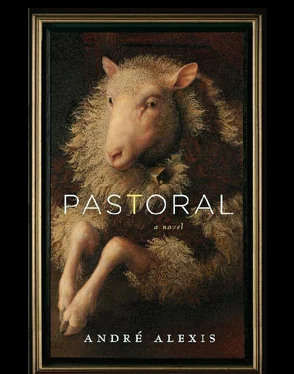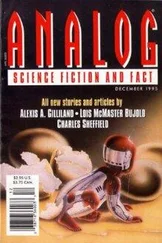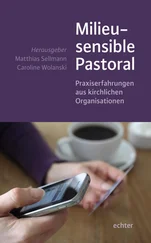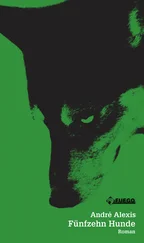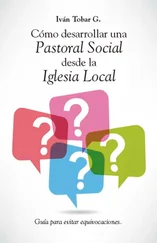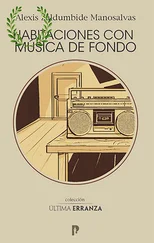There were plans for an official welcome. It was to take place the following Sunday. But those who came to the rectory on Father Pennant’s second day were the ones who could not resist seeing him sooner. Here was the man to whom they would confess the darkest things. It was important to feel him out. Mrs. Young, for instance, after she had watched him eat a piece of her macaroni pie, quietly asked what he thought of adultery.
André Alexis brings a modern sensibility and a new liveliness to an age-old genre, the pastoral.
For his very first parish, Father Christopher Pennant is sent to the sleepy town of Barrow. With more sheep than people, it is sleepily bucolic — too much Barrow Brew on Barrow Day is the rowdiest it gets. But things aren’t so idyllic for Liz Denny, whose fiancé doesn’t want to choose between Liz and his more worldly lover Jane, or for Father Pennant himself, whose faith is profoundly shaken by the miracles he witnesses — a mayor walking on water, intelligent gypsy moths and a talking sheep.
Praise for André Alexis’s previous books:
‘Astonishing. . an irresistible, one-of-a-kind work.’ –
Quill & Quire
(on
Childhood
)
‘Alexis [has an] astute understanding of the madly shimmering, beautifully weaving patterns created by what we have agreed to call memory.’ –
Ottawa Citizen
(on
Childhood
)
To Jane Ruddell
and Veronika Krausas
and Roo Borson
And In Memoriam Eighteen
Only the billowing overcoat remains,
everything else is made up.
— Franz Kafka, Diaries (1912)
Christopher Pennant had passed through a crisis of faith. His time at seminary had not been enough to free him entirely from doubt, but it had given him the strength to go on, and when he’d taken holy orders he had been both proud and relieved.
While waiting for a parish of his own, he assisted Father Scarduto at St. Matthew’s, in Ottawa. This suited Christopher perfectly. He was himself from Ottawa, so some of the strangeness (and pleasure) of being called ‘Father Pennant’ was offset by the familiarity of his surroundings. Whenever he allowed himself to think about where he might like to go — that is, where he might like his first parish to be — he imagined he’d be happiest in a small city of some sort: Cambridge, say, or Peterborough. So, he was dismayed when he was told he’d be going to a place in Lambton County called Barrow.
He was not unhappy to be leaving the city, but the city was where he had lived out most of his life and the word ‘country’ — Barrow was in the ‘country’ — was vague to him. It was a word that called to mind Cumberland, the town near which his parents had a cottage, the place where he’d spent his summers as a child. He had vivid memories of its farm fields and hills, but he had never gotten to know the town itself or its inhabitants. So, Barrow would be an adventure. He hoped he would be a suitable shepherd for those who needed spiritual guidance.
It would be fair to add that there was a hint of condescension to Father Pennant’s attitude. He assumed that the ‘country’ was simpler than the city, that rural routes were, metaphorically speaking, straighter than metropolitan ones. It followed, in his mind, that the people of Barrow would be more straightforward than those who lived in and around the Byward Market.
That this was not true he learned almost at once.
Barrow was a town of 1,100 inhabitants. Whether through some divine compulsion for equilibrium or through poor census taking, its population had been 1,100 for twenty years. In every other way, Barrow was a typical town in Ontario, with its grocery store, greasy spoon and churches.
Just outside of Barrow — and all around it — there were fields, silos, barns and farmhouses. Coming in by bus, Father Pennant was so enchanted by the land, by the thistles and yellowish reeds at the side of the road, that he asked the driver to let him off at the sign that said ‘Welcome to Barrow’ so he could walk into town, suitcase and all, on the warm April day that was his first in his new parish.
It was a Monday morning. There were few people about, few distractions. So, Father Pennant easily took in the trees, the birdsong, the crocuses along the sidewalk and the sky-mirroring ditch water that gently rippled when the wind blew.
As he walked along Main Street, a shop door opened beside him. The smell of bread saturated the air and a man came out with an apron full of crusts and crumbs. He shook his apron. The bits of bread fell onto the street and, from nowhere, a dozen pigeons descended, their wings flapping, quivering, flapping.
Turning to the priest, the man said
— Morning. John Harrington
and held out his hand.
— Good morning, answered Father Pennant.
The priest was just under six feet, dark-skinned, neither fat nor thin, brown-eyed and handsome. He wore a black jacket, black pants, a black shirt with a clerical collar and, on top of it all, a dark overcoat. Mr. Harrington smiled.
— Nice day, eh, Father? Would you like a kaiser roll or … No, wait. I have just the thing.
Before Father Pennant could speak, Mr. Harrington went into the bakery and emerged with a loaf of bread: warm, dark, somewhat round, pockmarked, smelling of yeast, molasses and burnt walnuts.
— Thank you so much, said Father Pennant.
He was about to walk on, pleased with his gift, when the baker said
— That’ll be two-fifty, Father.
As Father Pennant, startled and slightly embarrassed by the misunderstanding, reached into his pocket for the money, a ginger-coloured mutt charged at the pigeons. The dog was so obviously playing, however, that the pigeons scarcely moved out of its way. They turned their backs to it and went on pecking, as if it were common knowledge that the worst this mutt could do was wet them with its tongue.
— Bruno, called Mr. Harrington, leave the pigeons alone.
The dog barked, as if to say
— Yes, all right
then left the pigeons alone, bounding away as suddenly as he’d jumped among them.
Father Pennant’s first view of St. Mary’s church was gratifying. The church was plain, not at all grandiose, though its stained-glass windows, lit up by the afternoon sun, were a little garish. The rectory beside it was also plain. It was two storeys high, narrow, and had grey stone walls and a black-shingled roof. A young maple tree stood on its front lawn. The house was, or at least looked to be, perfect for him.
As he approached, Father Pennant noticed two older men sitting in wicker chairs on the porch. The men were partially obscured by shadow. One of them rose to greet him and Father Pennant saw that he was not as old as all that. His hair was white. He was gaunt. He needed a shave, and his bright blue sweater was fuzzy and frayed. But when he shook Father Pennant’s hand, his grip was firm. And his voice was strong and clear. He was in his late fifties, early sixties perhaps.
— Father, he said. I’m Lowther Williams.
Then, with a movement of his head toward the shade-hidden man behind him
— That’s my friend, Heath Lambert.
— Are you the caretaker? asked Father Pennant.
— If you like. I don’t think of myself that way, though. For Father Fowler, I did the cooking and cleaning and just about everything he couldn’t do for himself.
— I’m sorry, I thought there was a woman who did the cooking and cleaning. Someone from the parish.
— There was Mrs. Young, but she died two years ago, and I kind of took up the slack.
Читать дальше
